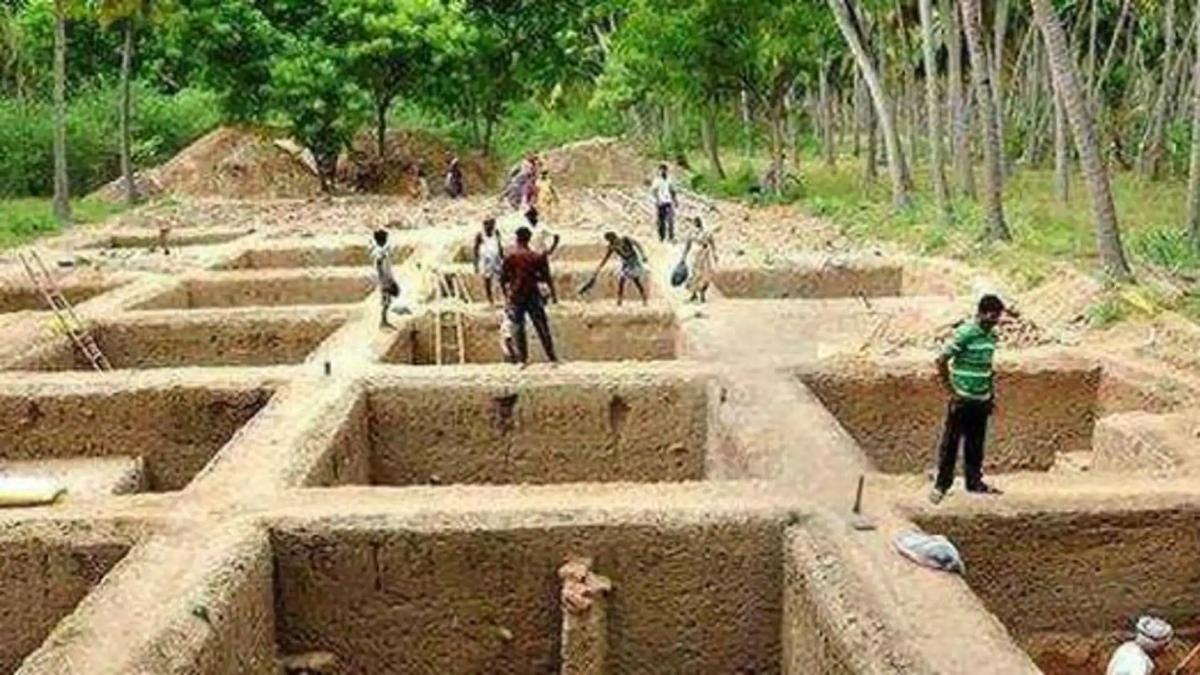'Anti-Tamil bias': Archeologist Amarnath Ramakrishna transferred again, amid growing Centre-state Keeladi row

In a move that has sparked a fresh political controversy over growing criticism against the central government’s delay in releasing the official report on the findings in Keeladi, the Archeological Survey of India (ASI) has transferred senior archeologist K. Amarnath Ramakrishna.
The transfer comes months after the ASI sought revisions and more evidence to his report on the Keeladi excavations.
According to an official order issued by Pravin Kumar Tripathi, Director (Administration), ASI, Ramakrishna—who was serving as Director of Antiquity and the National Mission on Monuments and Antiquities (NMMA)—has been re-assigned as the Director of the NMMA in Greater Nodia.
Ramakrishna, who is regarded as the architect of the Keeladi excavations, has been transferred from his present role in New Delhi to Greater Noida as Director, National Mission on Monument and Antiquity (NMMA). The post of the NMMA director, which was created during the Congress regime in 2007, has remained (almost) defunct.
ALSO READ | Explained: The Keeladi row and the Centre-state battle over Tamil Nadu history
Over the past decade, Ramakrishna has been transferred several times because of his huge role in the narrative around the Keeladi excavations. He was working as Director, Antiquity and National Mission on Monument and Antiquity in New Delhi until now.
The present transfer comes just six months since he was posted in New Delhi. Before being posted in New Delhi, Ramakrishna had worked as a Director for Excavation and Exploration for three months.
The findings in Keeladi, apparently suggested the presence of an urban civilisation in Tamil Nadu that could rival the civilisation in the Gangetic plains, which proved to be crucial evidence of an ancient Tamil civilisation dating back to the 5th century BCE.
Just a few weeks ago, the ASI had asked him to rework his 982-page report on the 5000-year Tamil civilisation with scientific evidence, plenty of pictures and diagrams—submitted in 2023.
The report offered details on artefacts which had been discovered during seven phases of excavations, as well as heaps of pottery which were unearthed from Keeladi, that portrayed how a pottery-making industry had flourished in the Tamil landscape several thousand years ago.
Hundreds of potsherds containing Tamil Brahmi inscriptions, spindle whorls, copper needles, terracotta seals, hanging stones of the yarn, terracotta spheres and earthen vessels to hold liquid (found in the later phases) suggested that various stages of a weaving industry existed once upon a time.
Also, gold ornaments, copper articles, semi-precious stones, shell bangles, ivory bangles and combs unearthed during the excavation revealed the artistic, culturally prosperous lifestyle of the people who lived in the ancient age in Keeladi.
However, in his reply to the ASI, Ramakrishna refused to rework the report. Days later, the Union Minister for Culture and Tourism Gajendra Singh Shekhawat during an event in Chennai said that the report was not technically sound, saying that further scientific studies were required to validate it.
This created political backlash in the state, with Chief Minister M.K. Stalin slamming the Union Government, labelling it an “anti-Tamil bias”.
ALSO READ | Explained: Is ASI expert Amarnath Ramakrishna being targeted over Keeladi excavations?
The DMK’s students wing also announced a massive protest at Veeraganur near Madurai against the centre.
Again on Tuesday, in a post on X, quoting the video posted by DMK’s student wing on the protest rally against the centre, Stalin said that “it is not the reports which have to be corrected, but it is the minds that have to be corrected”.
“How many obstacles must our Tamil nation face?” he questioned, in the tweet..
However, archeological experts say that Ramakrishna's punitive transfer now only indicates the centre’s discomfort in recognising the findings that establish Tamil antiquity, which is older than the Indus Valley civilisation.
India